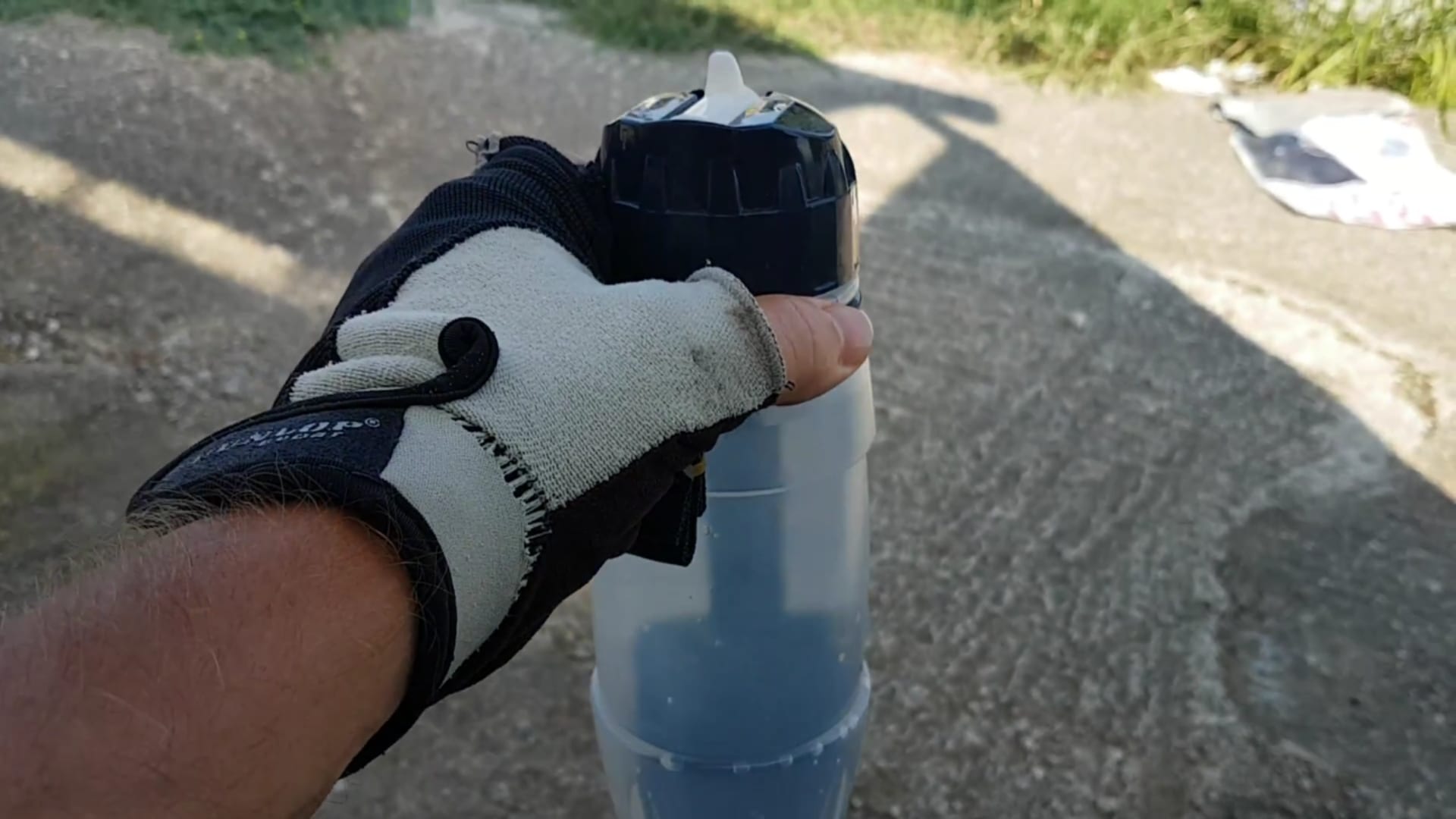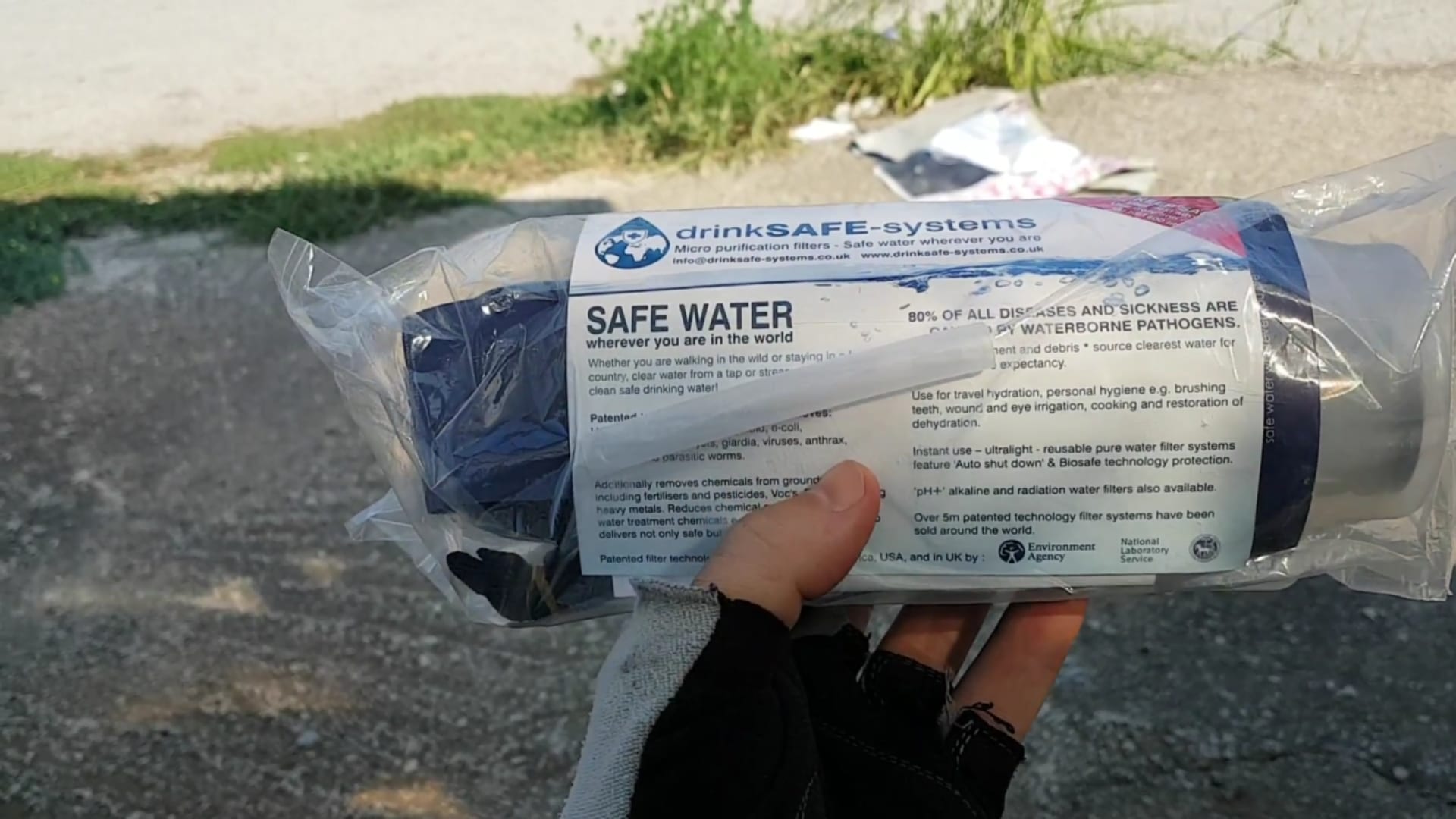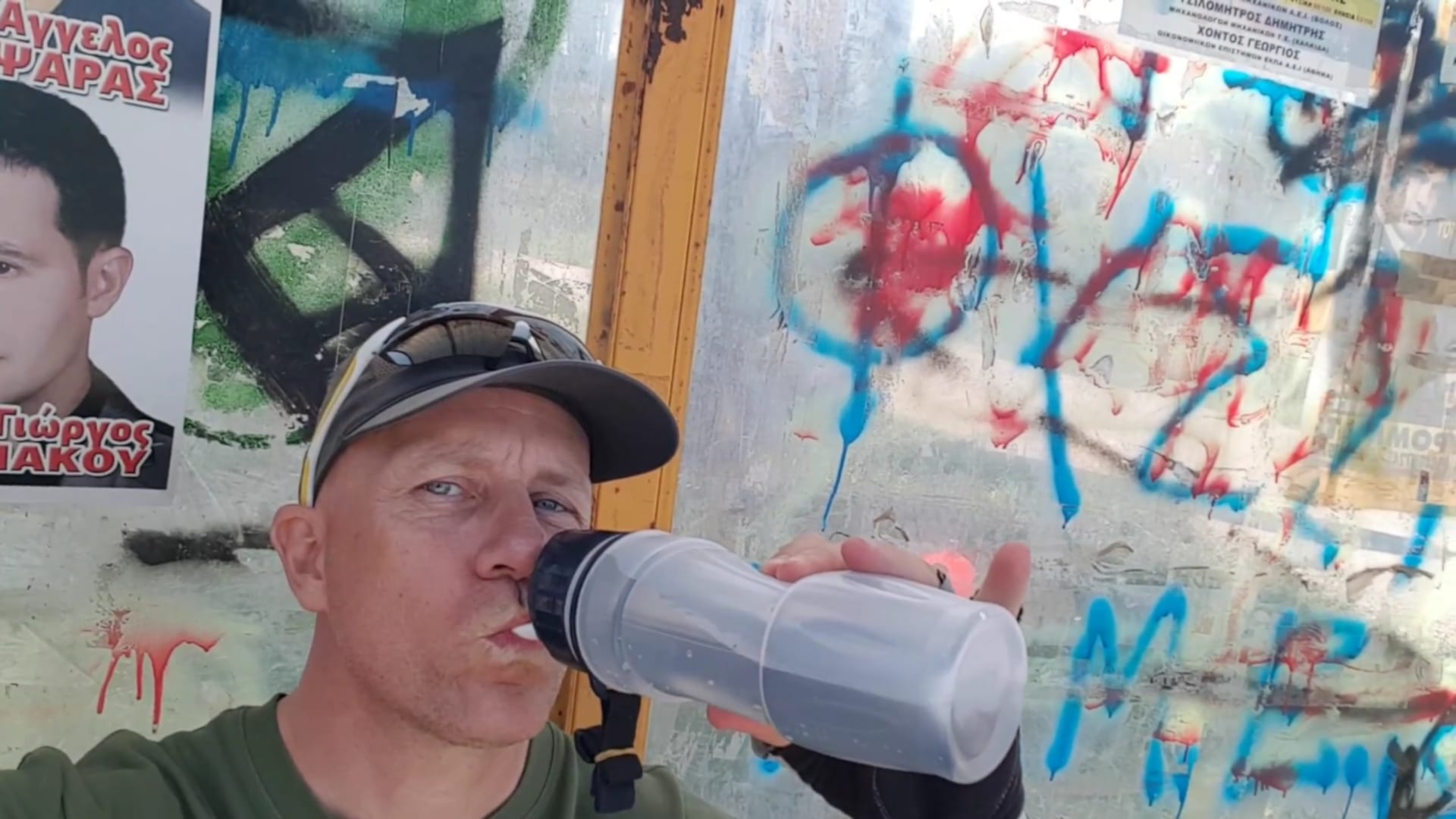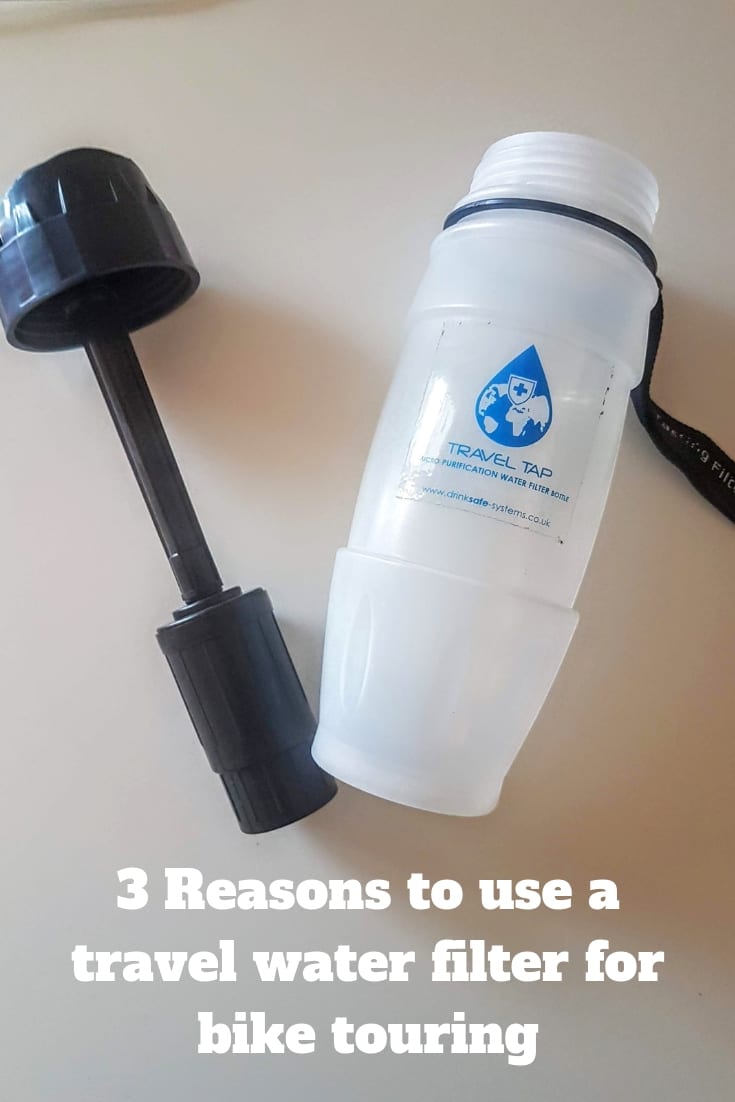Are you thinking of using a travel water filter for bike touring? If not, you should! Here's 3 reasons why it's a great idea to use a water filter on your next bike tour.

Bikepacking allows for adventurous and self-sufficient journeys through rugged terrains, but it also comes with the challenge of sourcing clean drinking water en route.
A bikepacking water filter is an essential piece of gear that addresses this issue. Compact and lightweight, this filter uses advanced filtration technology to remove bacteria, protozoa, and other contaminants from raw water sources, ensuring a safe and refreshing supply for your cycling excursions.
Travel Water Filters
Travel filters have changed a lot over the years.
When I first started bike touring, they were reasonably large and bulky objects.
Today, ‘filter straws', steripens, water bottles with filter and pumps are available in any outdoor shop.
Which water purifier for travel you use is going to be based on your own needs, budget, and even style of bike touring.
This article isn't about how to choose a water filter. Instead, it's about trying to get you to use a water purifying filter for touring in the first place!

Reasons to use a water filter for bike touring
I think that every cyclist planning a bike tour should take a water filter with them, even if the tour is only for a few days.
If you've not already decided to get yourself a portable water filter for bike touring, let me give you some reasons why!
#1 Filter drinkable water from anywhere
Ever dreamed of being able to filter water from streams and rivers as you wild camp? A portable water filter will allow you to do just that!
With the right sort of filter, you can safely drink water from rivers, and some models even allow for water to be pumped out of puddles!
Another big use for a travel water filter, and one that doesn't get mentioned much, is that you can also filter tap water.
In some countries, the water that comes out of a tap isn't drinkable. If it is, perhaps the taste isn't that great. A portable water filter will also take care of that nicely for you.
Sawyer Products SP128 Mini Water Filtration System, Single, Blue
✓ Ideal water filter for bikepacking, outdoor recreation, hiking, camping, scouting, domestic and International travel, and emergency preparedness
Also available in your local Amazon store. We may earn a commission from purchases you make after clicking links on this site
Prices pulled from the Amazon Product Advertising API on: 2025-06-30 10:07:46
#2 Save Money With A Bikepacking Water Filter
We're all looking to save money on a bike tour right? Having a water filter can do just that.
All you need to do is work out how much you spend on bottled water during a tour, and you'll soon realise you'll get a good return on investment after buying a water filter for travel.
In most cases, use the water filter 30 times or so, and you've broken even. Any more than that, and you're in profit!
All it requires is that little investment up front, and the rewards can be enjoyed for longer. For this reason, I always tend to look at buying bike touring kit as an investment rather than an expense!
#3 Save the environment
You don't need to be a tree-hugger to realise that there's far too much plastic being used and thrown away carelessly in today's world.
As a cyclist, you are probably more visually aware than most of the empty plastic bottles that roll around on the side of the road and in grass verges.

A travel water filter is going to cut down hugely on the amount of plastic you use during your bike tour. Do the world a favour, and get yourself one!
Related: How to use less plastic when you travel
Bikepacking Water Filter FAQ
Cyclists looking at ways to purify water during their bike tours, often have questions to ask such as:
Which survival water filter is best?
The Sawyer squeeze systems are a popular lightweight choice of water filtration system. The Sawyer filters are affordable, reliable, and a useful addition for a bug out pack or to take on an extended bikepacking trip.
How do you filter water while bikepacking?
Boiling water is one of the best ways to ensure you have water good enough to drink. A purification system is easier though, and makes sure that water contaminants are removed and the water filtered before being good enough to drink.
Which water filter removes the most contaminants?
The heavy duty Katadyn Pocket water filter is made of robust materials, making it ideal for long-lasting continuous use on bicycle touring adventures. These pump filters are super reliable at filtering water, and are used by armed forces around the world.
Does Katadyn remove viruses?
The Katadyn Pocket Water filter does not remove viruses, but does filter out bacteria and protozoa including Giardia and Cryptosporidium.
Related: 20 Positive Ways To Be A Responsible Traveller
Please pin for later

Related: 20 Reasons To Travel Around The World
Want to read some more bike touring tips on gear and kit? Take a look here:
- 7 Reasons to take a Powerbank on your next Bike Tour
- How to choose a camp stove for bicycle touring
- Top Pillows for Camping
- Duct Tape Bike Repairs
- Touring bike accessories and gear
- What to look for when buying a lightweight tent
 – Dave Briggs
– Dave Briggs
Dave has cycled around most of the world on different bicycle touring trips, and is always looking for the best way to make a tour easier. Taking a water filter when bike touring does just that, which is why he wrote this guide and review!
In addition to this blog post on reasons to take a water filter on a bikepacking trip, he's written many other guides about bike touring.
Follow Dave on social media for travel, adventure and bike touring inspiration:

You missed one reason, if you run out of water and there is no drinkable water about, but you can find a water source
I will be backpacking the Grand Canyon this fall and the reports say that there is Arsenic in the water. What water filter/purifier would work at cleaning the water?
Hi Olivia,
It sounds like a fantastic place to do some hiking!
In regards to your question – It’s not something I can answer, so I think it’s best to contact a water filter manufacturer through their help/customer service departments and ask them directly.